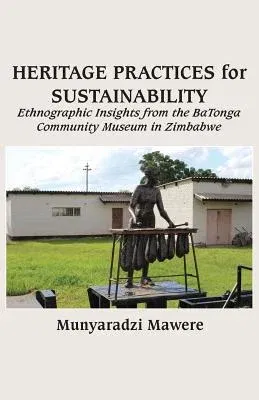Munyaradzi Mawere
(Author)Heritage Practices for Sustainability: Ethnographic Insights from the BaTonga Community Museum in ZimbabwePaperback, 13 September 2016

Qty
1
Turbo
Ships in 2 - 3 days
In Stock
Free Delivery
Cash on Delivery
15 Days
Free Returns
Secure Checkout
Print Length
108 pages
Language
English
Publisher
Langaa RPCID
Date Published
13 Sep 2016
ISBN-10
9956763071
ISBN-13
9789956763078
Description
Product Details
Author:
Book Format:
Paperback
Country of Origin:
US
Date Published:
13 September 2016
Dimensions:
21.59 x
13.97 x
0.56 cm
ISBN-10:
9956763071
ISBN-13:
9789956763078
Language:
English
Pages:
108
Publisher:
Weight:
136.08 gm

